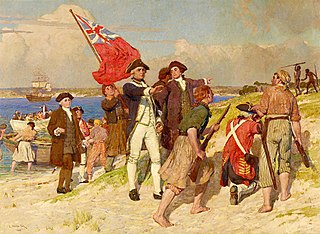| |||
|---|---|---|---|
| +... |
| 1770 in science |
|---|
| Fields |
| Technology |
| Social sciences |
| Paleontology |
| Extraterrestrial environment |
| Terrestrial environment |
| Other/related |

The year 1770 in science and technology involved some significant events.
| |||
|---|---|---|---|
| +... |
| 1770 in science |
|---|
| Fields |
| Technology |
| Social sciences |
| Paleontology |
| Extraterrestrial environment |
| Terrestrial environment |
| Other/related |

The year 1770 in science and technology involved some significant events.

Edward Waring was a British mathematician. He entered Magdalene College, Cambridge as a sizar and became Senior wrangler in 1757. He was elected a Fellow of Magdalene and in 1760 Lucasian Professor of Mathematics, holding the chair until his death. He made the assertion known as Waring's problem without proof in his writings Meditationes Algebraicae. Waring was elected a Fellow of the Royal Society in 1763 and awarded the Copley Medal in 1784.

1770 (MDCCLXX) was a common year starting on Monday of the Gregorian calendar and a common year starting on Friday of the Julian calendar, the 1770th year of the Common Era (CE) and Anno Domini (AD) designations, the 770th year of the 2nd millennium, the 70th year of the 18th century, and the 1st year of the 1770s decade. As of the start of 1770, the Gregorian calendar was 11 days ahead of the Julian calendar, which remained in localized use until 1923.

Joseph-Louis Lagrange, also reported as Giuseppe Luigi Lagrange or Lagrangia, was an Italian mathematician, physicist and astronomer, later naturalized French. He made significant contributions to the fields of analysis, number theory, and both classical and celestial mechanics.
The year 1778 in science and technology involved some significant events.
The year 1819 in science and technology involved some significant events, listed below.
The year 1773 in science and technology involved some significant events.
The year 1762 in science and technology involved some significant events.
The year 1796 in science and technology involved some significant events.
The year 1776 in science and technology involved some significant events.
The year 1799 in science and technology involved many significant events, listed below.
The year 1798 in science and technology involved some significant events.
The year 1882 in science and technology involved some significant events, listed below.
The year 1788 in science and technology involved some significant events.
The year 1786 in science and technology involved some significant events.
The year 1774 in science and technology involved some significant events.
The year 1764 in science and technology involved some significant events.
The year 1736 in science and technology involved some significant events.

Anders Johan Lexell was a Finnish-Swedish astronomer, mathematician, and physicist who spent most of his life in Imperial Russia, where he was known as Andrei Ivanovich Leksel.
Events from the year 1770 in Great Britain.

C/1769 P1 (Messier) is a long-period comet that was visible to the naked eye at its last apparition in 1769. The comet is classified as a great comet due to its superlative brightness.